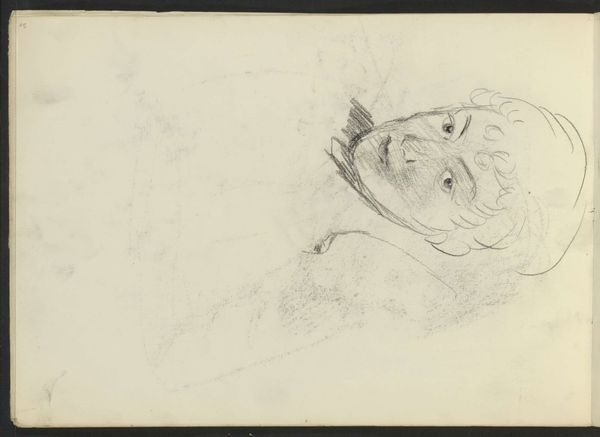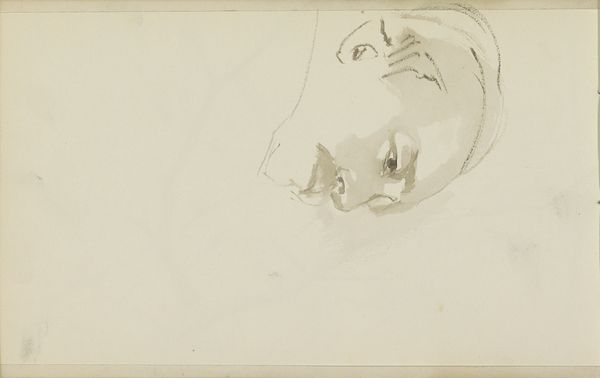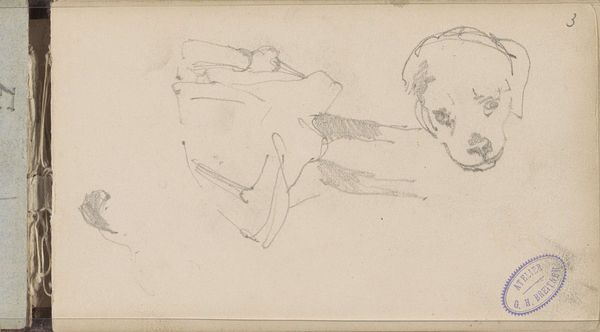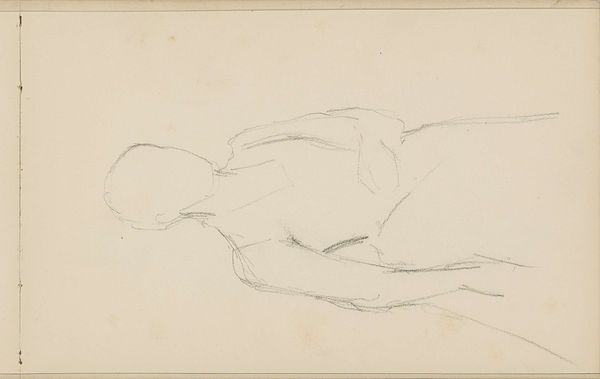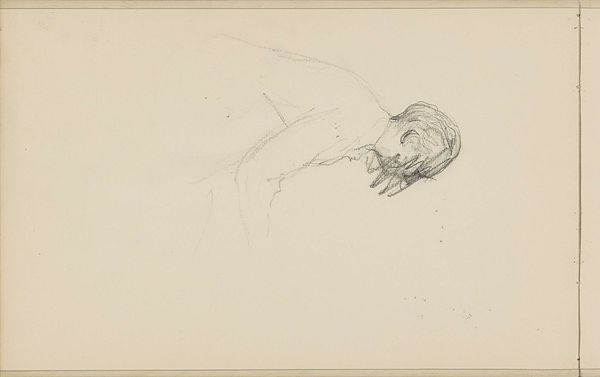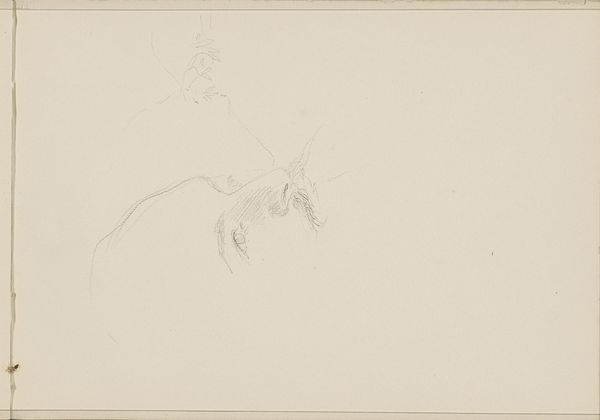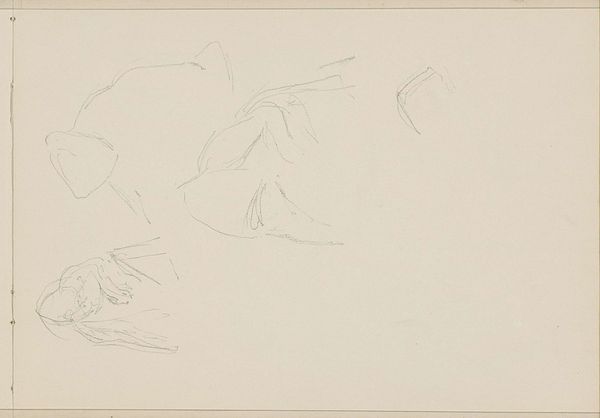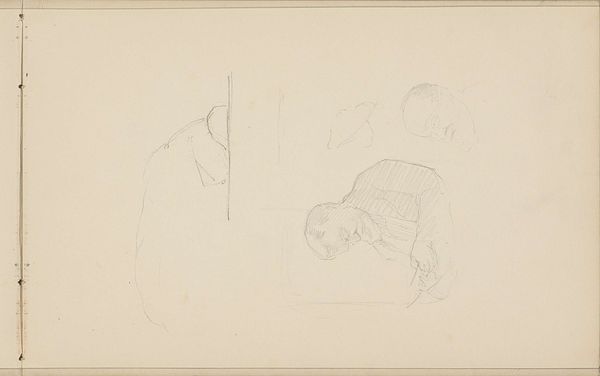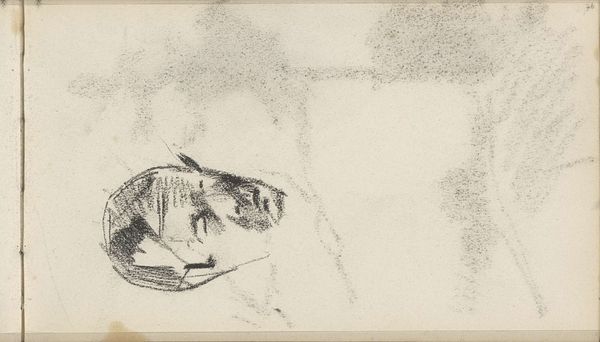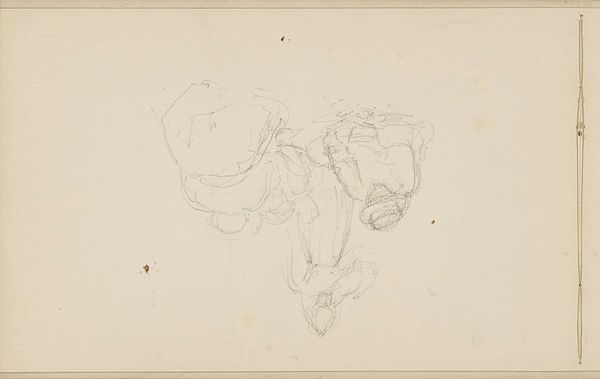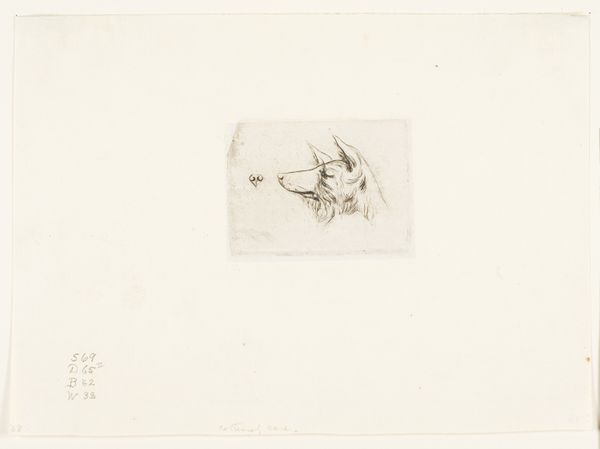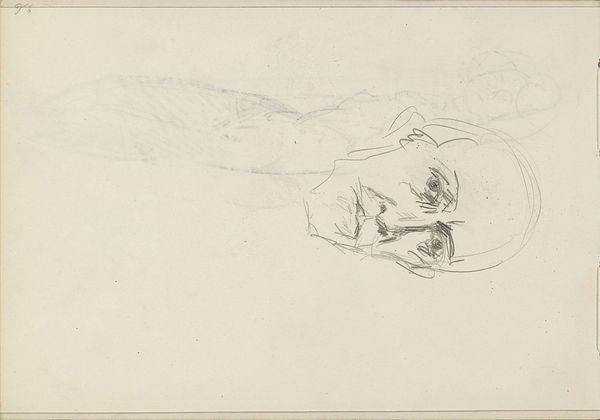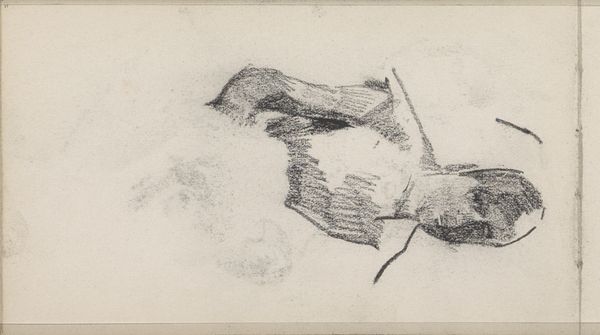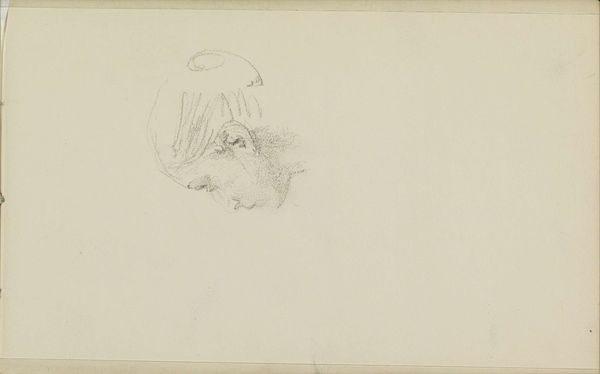
drawing, pencil
#
portrait
#
pencil drawn
#
drawing
#
pencil sketch
#
figuration
#
pencil
#
sketchbook drawing
#
pencil work
#
academic-art
Copyright: Rijks Museum: Open Domain
Editor: We are looking at "Vrouw met voorover gebogen hoofd", or "Woman with head bowed" by Cornelis Vreedenburgh, dating from 1890 to 1946. It’s a delicate pencil drawing housed here at the Rijksmuseum. It feels incredibly intimate, almost as if we're peeking into a private moment. What strikes you about its composition? Curator: The beauty of this work lies in its deliberate incompleteness. Note how Vreedenburgh uses hatching to construct the forms, but leaves the majority of the plane untouched. It prompts us to consider what isn't there, what is suggested, rather than explicitly stated. Editor: I see what you mean. There’s something powerful in the sparseness. Does the lack of background impact the portrait? Curator: Absolutely. The absence of a defined setting encourages us to concentrate on the figure itself and the subtleties of its construction through line and tone. The tilted head creates dynamic tension, especially within the confines of the notebook page, a frame in and of itself. How do you perceive that tension? Editor: It feels… heavy, somehow. Like the head's weight is a physical manifestation of an emotional state. Is there any story in this positioning, or am I just projecting? Curator: Projection is inherent in viewing any artwork! The positioning can evoke myriad responses, each rooted in individual perspective. Are you drawn to the way the form leans into itself, closing down negative space? Or might the open contour suggest further evolution beyond these mere materials? Editor: That's a lot to think about. Thank you. It’s fascinating to consider the power a simple pencil sketch can hold just through line, shading and negative space. Curator: Indeed. By studying this interplay between line and form, we better appreciate Vreedenburgh's mastery of suggestion.
Comments
No comments
Be the first to comment and join the conversation on the ultimate creative platform.
